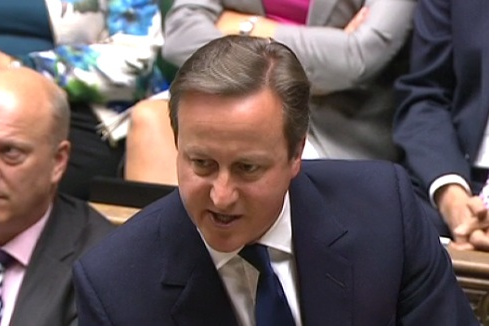Your support helps us to tell the story
From reproductive rights to climate change to Big Tech, The Independent is on the ground when the story is developing. Whether it's investigating the financials of Elon Musk's pro-Trump PAC or producing our latest documentary, 'The A Word', which shines a light on the American women fighting for reproductive rights, we know how important it is to parse out the facts from the messaging.
At such a critical moment in US history, we need reporters on the ground. Your donation allows us to keep sending journalists to speak to both sides of the story.
The Independent is trusted by Americans across the entire political spectrum. And unlike many other quality news outlets, we choose not to lock Americans out of our reporting and analysis with paywalls. We believe quality journalism should be available to everyone, paid for by those who can afford it.
Your support makes all the difference.A United Nations investigation into the treatment of disabled people by the British Government may not be all it has been “cracked up to be”, David Cameron has said.
The Prime Minister said he was proud of his Government’s record on people with disabilities and said he would cooperate with any probe, but downplayed its significance.
“Of course I will look at any United Nations investigation but sometimes when you look at these investigations they are not necessarily all they are originally cracked up to be,” he said.
“There are many disabled people our world who don’t have any of the rights or any of the support we have here in Britain and I think we should be proud of what we do as we cooperate with this report.”
A leading disability rights charity said in August that it had been contacted by the UN Committee on Rights of Persons with Disabilities to help with the probe.
The charity, Inclusion Scotland, reports that it was asked to assist with the investigation, said to focus on changes to the social security system to help disabled people
Such investigations are conducted “confidentially” by the UN and the body will not confirm or deny whether the UK is currently being put under scrutiny.
The Department for Work and Pensions has previously declined to comment on the possibility of an investigation.
Labour leader Jeremy Corbyn asked Mr Cameron at Prime Minister’s Questions on Wednesday to publish the details of the Government’s response to such an inquiry.
“This is deeply embarrassing to all of us in this house and indeed to the country as a whole,” he argued.
The Government’s approach to people with disabiliites had been controversial and been met with hostility from some campaign groups.
Work and Pensions Secretary Iain Duncan Smith used his Conservative party conference speech in Manchester to tell disabled people that they should work their way out of poverty.
“We don’t think of people not in work as victims to be sustained on government handouts. No, we want to help them live lives independent of the state,” he told the annual Conservative party conference in Manchester.
“We won’t lift you out of poverty by simply transferring taxpayers’ money to you. With our help, you’ll work your way out of poverty.”
The Work and Pensions Secretary has been lambasted for closing Remploy factories, the scrapping of the Independent Living Fund, cuts to payments for a disability Access To Work scheme and cuts to Employment and Support Allowance.
Fitness to work tests have also been the subject of disquiet, with critics labeling them unfair, arbitrary, and bureaucratic.
The Government’s so-called “bedroom tax” also primarily hits disabled people, with around two thirds of those affected by the under-occupancy penalty being disabled.
The DWP's sanctions regime has also been criticised, s media controvery over death statistics released by the Department after a long-running tug-of war over freedom of information law.

Join our commenting forum
Join thought-provoking conversations, follow other Independent readers and see their replies
Comments